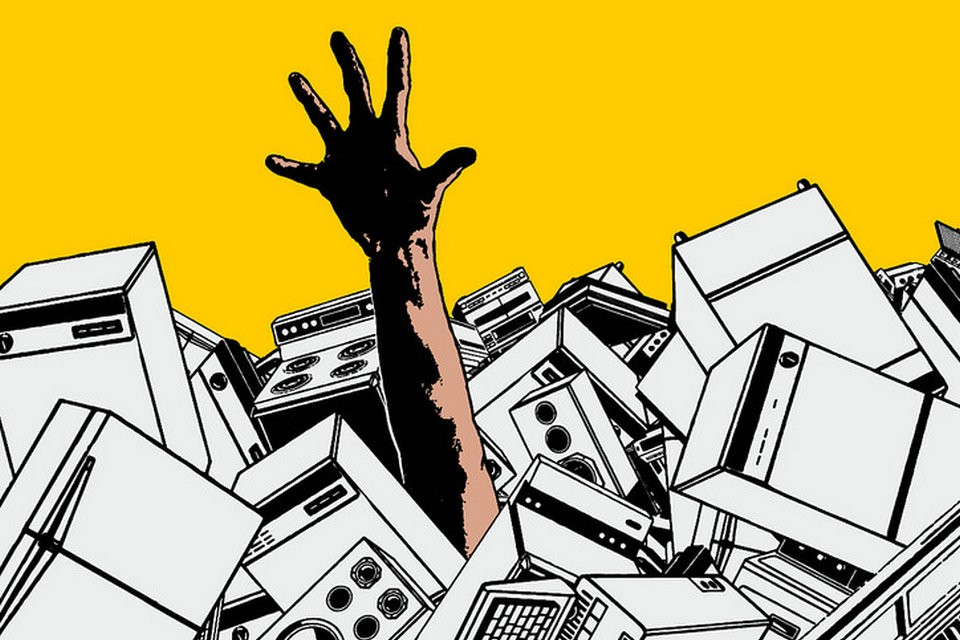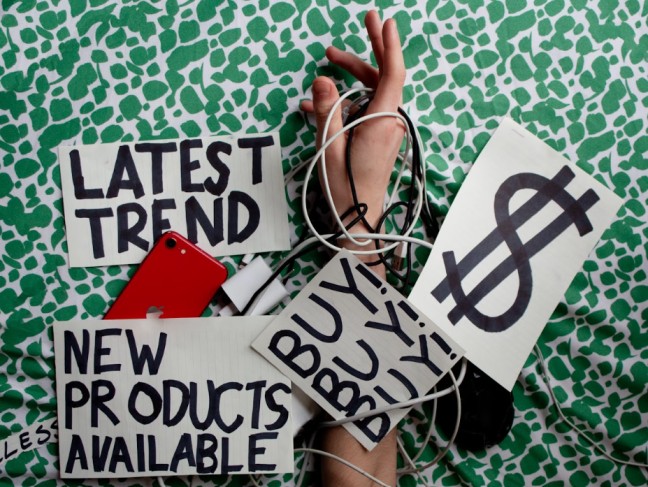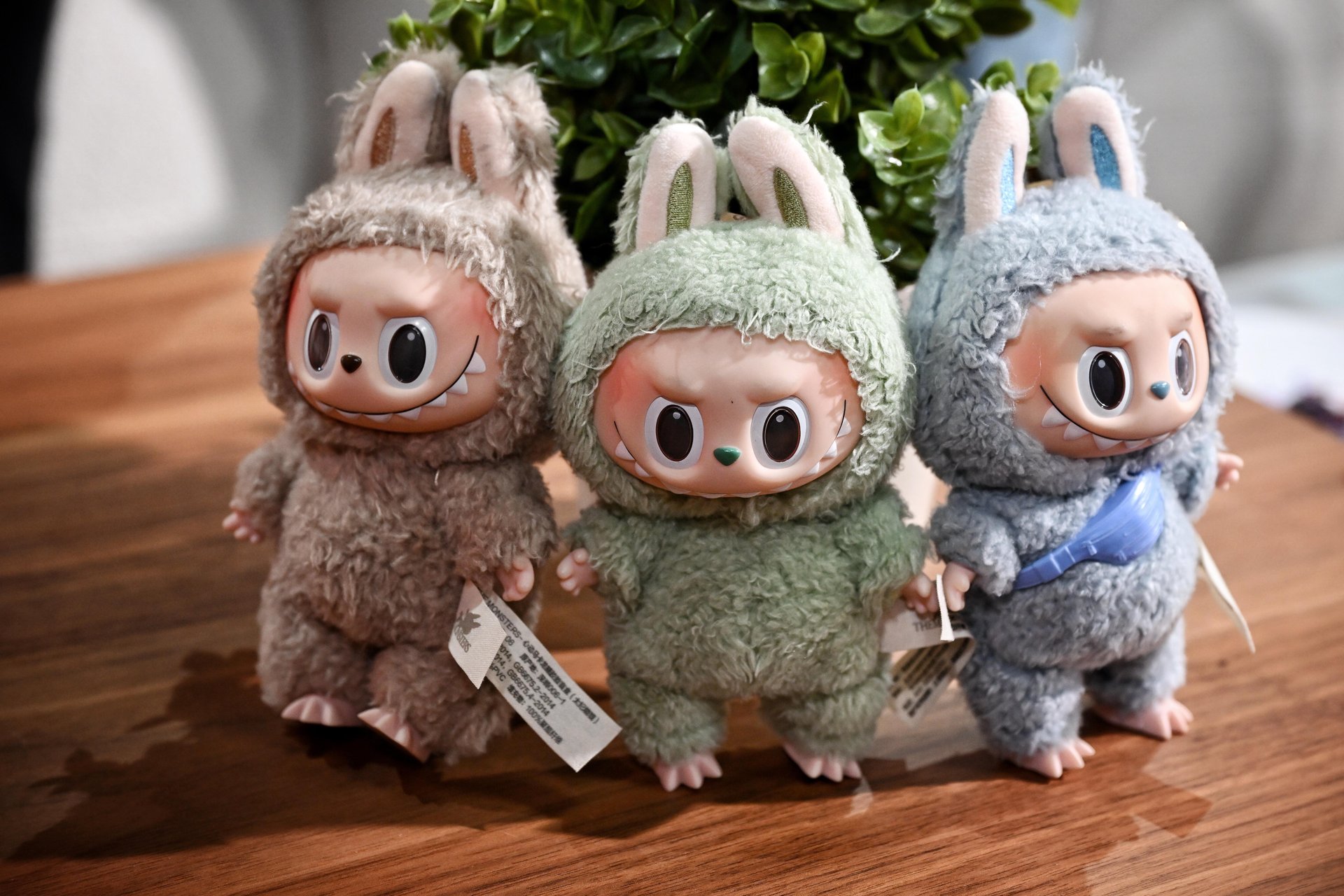What Labubu dolls, AI therapists, and Stanley Cups reveal is not just the power of trend, but the vulnerability of a generation caught in the whirlwind of hyper-consumption.
Evidence Egwuono Adjarho
You don’t need to be an active social media user to know, or at least have heard, of the Labubu dolls. The trend of unboxing these dolls has taken over not just social media, but also permeated the real world, with organised meetups for Labubu fans where adults often appear more ecstatic than children when unboxing these monster dolls.
Humans are social animals, as postulated by the philosopher, Aristotle. This presupposes that, at the core of human existence, lies a dependence on activity that could be relational, cognitive, and/or emotional. Such activity can manifest in any form: in friendship, in the act of meeting others, bonding, hating, falling in love, betraying, and even losing connection. Together, these experiences characterise what it means to be human.
Within these social interactions, various things are learned, unlearned, and relearned. While the debate between nature and nurture remains perennial; whether our identities are shaped more by heredity or environment, I incline towards a collaborative view of both. When a child is born, they inherit certain genetic traits, but as they grow and interact with others, these biological foundations are shaped, reshaped, and sometimes subverted by the cultures, beliefs, and worldviews they encounter.
Eventually, the individual must begin to choose which paths to follow (this, too, is arguable, especially when one considers the weight of fate, structural violence, or inherited disadvantage). Yet, more often than not, society intervenes prematurely. It dictates the acceptable types of friendships, careers, values, and even desires. This becomes especially problematic for those who interrogate reality, those who ask: Why is the best fruit forbidden? Why must we walk this path? Why not something else?

In this search for answers, many lose their sense of individuality and instead succumb to collective behaviour—what is often described as “bandwagoning”. The term “bandwagon” originates from 19th-century American politics, when politicians would jump on bandwagons during parades to gain popularity. Today, it describes the phenomenon of adopting beliefs or behaviours simply because others are doing so. Indeed, each century expresses this impulse in its own way.
The twentieth century was marked by cautious exploration: quiet revolutions in innovation, technology, and the arts. The twenty-first century, however, behaves like a precocious child performing loudly for guests, ignoring every disapproving glance from its parents. This century is not only about innovation; in addition, it is about rapid and often unchecked change.
Consider the field of Artificial Intelligence. Tools such as ChatGPT, DeepSeek, Grok, and Gemini have made what were once arduous tasks effortlessly simple. One no longer needs years of training to find a solution; answers now appear at the click of a button.
Yet, as in the Yoruba metaphysical understanding of duality—ire and ibi, good and bad—the benefits of these tools also carry unsettling implications. The fear that AI will displace human labour is no longer speculative; it is already real. In a country like Nigeria, where mental health care remains largely inaccessible due to cost and stigma, AI chatbots have become pseudo-therapists. It is strange—almost disturbing—to watch people pour their hearts out to an algorithm. How can a machine, incapable of feeling, genuinely understand yours?
I have had conversations with friends and acquaintances who chat with Gemini, ChatGPT, and other bots. One realises that these methods have been normalised by such individuals. Once, someone told me, “AI doesn’t judge, unlike humans, so why should I stop talking to AI?” Yet this, as it turns out, is not even the most troubling part.
Social media use has exploded in the 21st century. According to Statista, by 2028, the number of social media users worldwide is projected to surpass 6 billion. This increase is unprecedented and still growing. Each platform caters to a particular social logic: Instagram rewards aesthetic curation (what my people might call Fake Life), X (formerly Twitter) thrives on often insane arguments and toxicity, while TikTok is the global engine of challenges, memes, and viral trends.
To be sure, these platforms have their merits. They connect, entertain, and even democratise information. But beneath the surface lies a more dangerous consensus: that these platforms amount to an algorithmic determination of desire. They decide what we should see, want, admire, or avoid. And in doing so, they foster a phenomenon known as FOMO—Fear of Missing Out.

FOMO has become one of the defining effects of digital culture. It drives our need to stay “updated”, to engage with every trending sound, to post consistently across multiple platforms, and to consume content not out of genuine interest, but from the anxiety of being left behind. Often, we do not recognise it for what it is. That obsessive interest in a previously forgettable song, now adored simply because everyone else is singing it? That’s FOMO. The impulse to follow influencers’ recommendations for items we know we don’t need? FOMO again.
But FOMO is not simply a pop-culture term; it is psychological. Humans are wired to belong. Social validation activates neural pathways linked to reward and self-esteem. Yet this basic instinct is now being expertly exploited by capitalists and corporations.
Often, this exploitation takes the form of what I call the “must-haves”. Have you ever seen a post that says, “Five things every dark-skinned girl must own” while marketing a skincare product? That, right there, is marketing via FOMO—products that should be considered optional being framed as essential. All it takes is strategic promotion, a few influencers, and a well-placed ad. And suddenly, you are craving something you objectively do not need.
From skincare to gadgets, books to household items, FOMO drives consumption. Nowhere is this more apparent to me than in Nigeria (and I say this because I live here). Despite the economic downturn—where inflation, unemployment, and a rising cost of living have made basic survival difficult—there is still an astonishing demand for status symbols. For example, how does a Nigerian earning ₦100,000 a month afford an iPhone worth over ₦500,000? The answer lies less in utility and more in social signalling.
Marxist critics call this the commodification of social value, that is, the tendency to assign worth to objects based not on function, but on the prestige they bestow. In Nigeria, the iPhone isn’t just a phone; it confers upon its owner the status of what is referred to in Nigerian parlance as “I don arrive”. The same logic explains the obsession with Stanley Cups, a seemingly ordinary piece of drinkware which, through trend culture, became a global sensation. A friend of mine was recently accused of “not being a lady” because she didn’t know what a Stanley Cup was.
And now, we come to perhaps the most confounding example of trend culture yet: Labubu dolls. These quirky, grotesque-looking figurines are part of the “Monster Family” series created by Hong Kong illustrator, Kasing Lung. With jagged teeth, scruffy appearances, and unsettling grins, Labubu dolls were once niche collectibles within Asian toy circles. Their popularity surged after collaborations with designer toy brand, Pop Mart, spreading globally through social media. Gen Z and young millennials now share unboxing videos, display collections, and even trade them like currency at pop culture events.

Despite their creepy aesthetic, these dolls have amassed a cult-like following. And, perhaps unsurprisingly, Nigerians—some of whom lament the high cost of living—are now among those paying six figures (in naira) to acquire them. The irony is almost poetic: a society that cannot access basic healthcare or education can still indulge in luxury toys simply because everyone else is doing it.
For instance, according to a report by The Punch, over ₦20 billion was spent on the maintenance and operations of the Presidential Air Fleet between 2023 and 2024, even as the Nigerian state continues to struggle in the aftermath of the President’s decision to remove fuel subsidy. Federal universities in Nigeria have long been abandoned by the Federal Government to generate income for themselves.
Consequently, these universities are gradually becoming capitalist ventures in order to remain operational. The University of Lagos, for example, increased tuition fees from less than ₦50,000 to well over ₦200,000. Other universities, such as the University of Ibadan, have also experienced this disturbing hike.
What Labubu dolls, AI therapists, and Stanley Cups reveal is not just the power of trend, but the vulnerability of a generation caught in the whirlwind of hyper-consumption. FOMO is no longer a fleeting anxiety; it has evolved into a cultural engine, driving how we dress, what we buy, how we think, and even how we feel.
In a society where social algorithms now shape psychological instincts, and where belonging is purchased and validation outsourced, the line between choice and manipulation becomes increasingly blurred. And if we do not begin to reckon with this, then I am not sorry to be the harbinger of bad news: the future might very well be as dystopian as a grinning, bug-eyed doll smiling back at us from a shelf we couldn’t afford.
Evidence Egwuono Adjarho is a dynamic and evolving creative with a flair for literature and the arts. She finds joy in reading and writing, and often spends her free time observing the world around her. Her interests span a wide range of artistic expressions, with a particular focus on storytelling in its many forms including photography.




